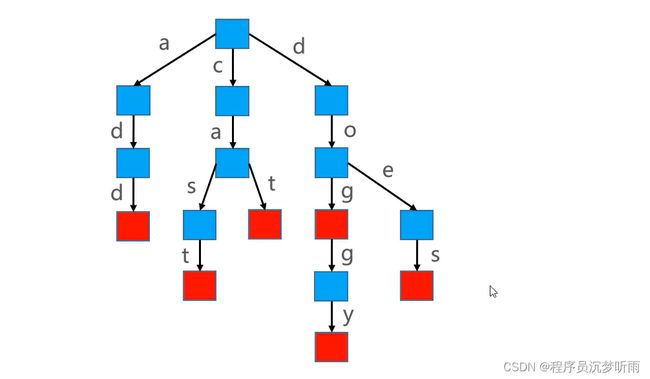- CCNP之IGP学习笔记(2022)
码龄4年 审核中
笔记OSPFRIPEIGRPIGPCCNP
evecommunityedition2.0.3-92_v1.4.1.ovaOVF(OpenVirtualizationFormat:开放虚拟化格式)和OVA(OpenVirtualizationAppliance:开放虚拟化设备)appliance器具collaborative合作的;协力完成的translation翻译;译文;译本;转化CollaborativeTranslationFrame
- CMake 开发库(Library)的最佳实践
arong-xu
CMakec++CMake最佳实践
1.使用ModernCMake开发库CMake在C++社区中非常流行,可以说是事实上的C++包管理工具.在MeetingC++开发者调查中,有75.73%的受访者表示自己使用CMake作为构建工具.选择一个广泛流行的工具来打包库意味着你的项目更容易被别人使用.本文将从一个简单的库的打包样例开始,介绍编写CMake的最佳实践.由于CSDN的markdown不支持highlight特定行,有兴趣的读者
- 学习-Java常用类之Calendar类
AIains
Educoder—Javajava
第1关:学习-Java常用类之Calendar类任务描述相关知识编程要求测试说明任务描述本关任务:获取给定年月的最后一天。相关知识我们通过之前的学习已经能够格式化并创建一个日期对象了,但是我们如何才能设置和获取日期数据的特定部分呢,比如说小时,日,或者分钟?我们又如何在日期的这些部分加上或者减去值呢?calendar类是一个抽象类,是Java日期处理的核心类之一。Calendar类为操作日历字段,
- 高效快速教你DeepSeek如何进行本地部署并且可视化对话
大富大贵7
程序员知识储备1程序员知识储备2程序员知识储备3经验分享
科技文章:高效快速教你DeepSeek如何进行本地部署并且可视化对话摘要:随着自然语言处理(NLP)技术的进步,DeepSeek作为一款基于深度学习的语义搜索技术,广泛应用于文本理解、对话系统及信息检索等多个领域。本文将探讨如何高效快速地在本地部署DeepSeek,并结合可视化工具实现对话过程的监控与分析。通过详尽的步骤、案例分析与代码示例,帮助开发者更好地理解和应用DeepSeek技术。同时,本
- 【嵌入式学习2】指针 - 数组
XYN5114
嵌入式学习学习笔记嵌入式硬件c语言
目录##概述##指针###指针特点##指针变量###指针变量特点##区别##指针变量的使用定义指针变量时:使用指针变量时:##通过指针间接修改变量的值##指针大小指针大小与数据类型无关:无论指针指向什么类型的数据(int、char、double等),指针本身的大小只取决于系统的位数(32位或64位)。##指针步长###指针步长的计算方式##空指针和野指针##多级指针##指针与常量##函数参数传递内
- Jetson 系列摄像头使用说明【以Jetson Nano为例】
爱吃小馋猫
自动驾驶opencv人工智能计算机视觉
1、连接摄像头首先,把Nano的这个CSI接口的这个销子轻轻拔起,记住一定要小心,轻点儿!之后将摄像头连接线,如下图所示的方式插入。合上插销,连接完成!2、硬件连接第一步:将摄像头排线,金属面朝向散热板插入JetsonNVIDIA开发套件上的摄像头接口;第二步:启动JetsonNVIDIA;第三步:测试摄像头;第四步:打开终端(键盘按下Ctrl+ALT+T快捷键打开终端),输入以下指令测试摄像头;
- Three.js世界中的三要素:场景、相机、渲染器
Front_Yue
3D技术实践指南javascriptthree.js3d
一、Three.js简介Three.js是一个基于WebGL的JavaScript库,它允许开发者在网页上创建和显示复杂的3D图形和动画,而无需用户安装任何额外的插件或软件。Three.js在Web开发中的地位非常重要,它通过提供简单直观的API,极大地降低了3D图形开发的门槛,使得开发者可以更专注于实现创意。Three.js广泛应用于游戏开发、虚拟现实、数据可视化、艺术创作等多个领域。二、场景:
- 机器学习——分类、回归、聚类、LASSO回归、Ridge回归(自用)
代码的建筑师
模型学习模型训练机器学习机器学习分类回归正则化项LASSORidge朴素
纠正自己的误区:机器学习是一个大范围,并不是一个小的方向,比如:线性回归预测、卷积神经网络和强化学都是机器学习算法在不同场景的应用。机器学习最为关键的是要有数据,也就是数据集名词解释:数据集中的一行叫一条样本或者实例,列名称为特征或者属性。样本的数量称为数据量,特征的数量称为特征维度机器学习常用库:Numpy和sklearn朴素的意思是特征的各条件都是相互独立的机器学习(模型、策略、算法)损失函数
- CentOS 7 下 Supervisor 安装与配置
OUDKE
centoslinux运维服务器
Supervisor是一个用于管理和监控进程的工具,它可以在CentOS7服务器上轻松地启动、停止和重启进程。在本文中,我将向您展示如何安装和配置Supervisor。步骤1:安装Supervisor首先,我们需要使用yum包管理器安装Supervisor。打开终端并执行以下命令:sudoyuminstallepel-releasesudoyuminstallsupervisor这将安装Super
- RK平台下Buildroot驱动编译环境入门
ItJavawfc
RK系统-驱动驱动学习KernelUbuntuBuildroot
提示:低配置电脑下驱动编译环境搭建,驱动学习环境准备文章目录目的需求环境Ubuntu18Desk桌面开发环境Buildroot编译环境基本要求个人环境VM环境配置+Buildroot编译环境配置Buildroot编译总结目的搭建驱动开发编译环境硬件环境要求不达标如何进行配置规避,使编译环境编译OK为后续自己开发工作中,学习环境做一个简单的指导需求这里我需要搭建的环境是Ubuntu上面用Linux源
- 在CentOS上安装Supervisor进行进程监控
张3蜂
软件安装部署centoslinux运维
安装EPEL存储库:sudoyuminstallepel-release安装Supervisor:sudoyuminstallsupervisor启动并启用Supervisor服务:sudosystemctlstatussupervisordsudosystemctlstartsupervisordsudosystemctlenablesupervisord配置Supervisor:Supervi
- 量化交易系统中如何处理机器学习模型的训练和部署?
openwin_top
量化交易系统开发机器学习人工智能量化交易
microPythonPython最小内核源码解析NI-motion运动控制c语言示例代码解析python编程示例系列python编程示例系列二python的Web神器Streamlit如何应聘高薪职位量化交易系统中,机器学习模型的训练和部署需要遵循一套严密的流程,以确保模型的可靠性、性能和安全性。以下是详细描述以及相关的示例:1.数据收集和预处理数据收集在量化交易中,数据是最重要的资产。收集的数
- 深入拆解Nightingale_alert中篇上(三)
weixin_47028810
夜莺github开源软件golang运维
前言上一篇我们首先初步了解一下开源项目-夜莺的alert告警引擎模块的目录,其次通过查看n9e-alert通过Initialize函数的源码大概了解了告警引擎初始化做了哪些工作,另一个重要原因Initialize函数也是通过调用Start函数来实现启动告警引擎,这个和中心节点的n9e进程接入告警引擎是一致的。本文打算通过Start函数来进一步拆解并分析告警引擎的工作原理。告警引擎启动入口-Star
- 量化交易简介
终回首
OtherLanguage人工智能量化交易python
这里写目录标题1是什么2为什么3开源量化交易项目中国德国美国4商业版交易平台5量化界大佬3.1先驱者3.2其他知名人物1是什么借助数学方法,利用计算机技术进行交易的证券投资技术。一般流程想到一种策略。例如股价大于5日均价则卖出,股价小于5日均价则买入。把策略细化成可操作的步骤用代码实现策略的细化操作步骤检验策略效果用历史数据回测。在历史数据上模拟执行该策略,看经过给定的一段时间之后的收益情况如何。
- ArrayList 和 LinkedList区别
重生之我在成电转码
java多线程系统
一、底层实现特性ArrayListLinkedList数据结构动态数组(Object[]数组)双向链表(每个节点有前驱和后继)内存布局连续内存,空间利用率高非连续内存,空间占用大元素访问方式下标随机访问(基于索引)只能顺序遍历,找元素慢⏱二、时间复杂度对比(核心!)操作ArrayListLinkedList随机访问O(1)O(n)头部插入O(n)(全体后移)O(1)中间插入O(n)O(n)尾部插入
- 不懂英语可以学编程吗?,不懂英文可以学编程吗
P5688346
人工智能
大家好,给大家分享一下英语不好能学python编程吗,很多人还不知道这一点。下面详细解释一下。现在让我们来看看!Sourcecodedownload:本文相关源码提到人工智能,就不得不提Python编程语言,大多数人觉得编程语言肯定会涉及到很多代码,满屏的英文字母,想想就头疼,觉得自己不会英语,肯定学不好Python,但是不会英语到底能不能够学习Python呢,下面小编给大家分析分析。其实各位想要
- npm error gyp info
计算机辅助工程
npm前端node.js
在使用npm安装Node.js包时,可能会遇到各种错误,其中gyp错误是比较常见的一种。gyp是Node.js的一个工具,用于编译C++代码。这些错误通常发生在需要编译原生模块的npm包时。下面是一些常见的原因和解决方法:常见原因及解决方法Python未安装或版本不兼容:Node.js使用Python来运行gyp。确保你的系统上安装了Python,并且版本与node-gyp兼容。通常推荐使用Pyt
- 大屏自适应终极方案:基于比例缩放的完美适配实践(Vue3版)
FFF-X
html5javascript
需求背景在数据可视化大屏开发中,我们常面临这样的挑战:如何让1920*1080的设计稿在不同分辨率设备上完美呈现?传统的响应式布局难以应对复杂的大屏元素排布,本文介绍一种基于CSS3变换的终极适配方案实现思路本方案的核心是动态比例缩放,通过以下关键步骤实现:基准比例锁定:基于设计稿宽高比(16:9)建立基准比例视口实时检测:通过resize事件监听窗口变化智能比例判断:当视口更宽时:保持高度基准,
- Qemu&KVM 第一篇 (3)QEMU 架构
weixin_34160277
操作系统
QEMU架构我们首先了解一下QEMU如何实现仿真。本节将介绍QEMU的两种操作模式,以及QEMU动态翻译程序的一些有趣特点。QEMU基本操作QEMU支持两种操作模式:用户模式仿真和系统模式仿真。用户模式仿真允许一个CPU构建的进程在另一个CPU上执行(执行主机CPU指令的动态翻译并相应地转换Linux系统调用)。系统模式仿真允许对整个系统进行仿真,包括处理器和配套的外围设备。在x86主机系统上仿真
- Java架构师成长之路
hweiyu00
分享spring微服务springcloudjava
概述本教程主要从6个方面,全面讲解Java技术栈的知识。1.性能调优深入理解MySQL底层原理、索引逻辑,数据结构与算法。使用Explain进行优化分析MVCC原理剖析日志机制解析2.框架源码掌握Spring底层原理带你手写一个Spring解析IOC、AOP源码、以及事务原理3.并发编程剖析Java底层锁机制CAS、JUC工具使用、AQS源码分析以及并发的集合类的讲解4.分布式开发剖析分布式中使用
- sqlmap笔记
君如尘
网络安全-渗透笔记笔记
1.运行环境sqlmap是用Python编写的,因此首先需要确保你的系统上安装了Python。sqlmap支持Python2.6、2.7和Python3.4及以上版本。2.常用命令通用格式:bythonsqlmap.py-r注入点地址--参数-rpost请求-uget请求--level=测试等级--risk=测试风险-v显示详细信息级别-p针对某个注入点注入-threads更改线程数,加速--ba
- C#基础学习(二)C#数组生存手册:从入门到“血压拉满“的奇妙旅程
FAREWELL00075
c#学习开发语言数组Array
作为一只C#萌新,当你试图用数组装下整个世界时,系统可能会温柔地弹出一句**"Indexwasoutsidetheboundsofthearray."**。别慌!这份求生指南将用段子教你玩转数组一、数组是什么数组简单来说就是由相同元素组成的一个集合,数组里面不一定是数,还可能是bool,string等类型组成的集合。那么他有些什么特点呢:本质:装着相同类型元素的集装箱(比如一箱肥宅快乐水)特性:长
- 笔记:代码随想录算法训练营day60:并查集理论基础、寻找存在的路径
jingjingjing1111
笔记
本文为学习并查集理论基础|代码随想录、代码随想录过程中的思考find是找的顶头上司,而不是当前上司,最后怎么也得找到一个顶头上司的上司是自己,要不然这个结构也不成立使用issame替换会使被操作者为当前节点,而非根节点。join(u,v)的功能为将v的根节点挂到u的根节点下模拟过程可以看出,join中的find中的路径压缩要在长度大于2(路径大于1)的时候才会体现出来107.寻找存在的路径卡码网题
- Docker 容器基础技术:namespace
寻雾&启示
docker容器运维
在容器内进程是隔离的,比如容器有自己的网络和文件系统,容器内进程的PID为1,这些都是依赖于Linuxnamespace所提供的隔离机制。本篇我们来了解下Linux有哪些namespace,以及它们是如何实现隔离的。文中案例代码均由ChatGPT生成,在Linux内核5.15.0-124-generic,ubuntu22.04LTS系统上测试通过。namespace类型每个进程都有自己所属的nam
- vLLM - 查看模型是否支持
云客Coder
人工智能
支持的模型:https://docs.vllm.ai/en/latest/models/supported_models.html要确定是否支持给定模型,您可以检查HF存储库中的config.json文件。如果"architectures"字段包含下面列出的模型架构,那么理论上应该支持它。查看模型架构查看模型的config.json中的architecturescat~/.cache/huggin
- 计算机基础:编码04,认识反码和补码
水饺编程
MFC学习笔记Win32学习笔记windowsc++mfcc语言
专栏导航本节文章分别属于《Win32学习笔记》和《MFC学习笔记》两个专栏,故划分为两个专栏导航。读者可以自行选择前往哪个专栏。(一)WIn32专栏导航上一篇:计算机基础:编码03,根据十进制数,求其原码回到目录下一篇:无(二)MFC专栏导航上一篇:计算机基础:编码03,根据十进制数,求其原码回到目录下一篇:无本节前言在前两节,我讲解了关于原码的知识。本节,我来讲解反码和补码。在学习本节之前,你需
- QEMU与KVM架构
三境界
虚拟化架构开发语言
完整架构图,来自QEMU官网QEMU与KVM架构总体上分为3部分。VMXroot模式的应用层(左上)VMXroot模式的内核层(左下)虚拟机的运行(右上)VMXroot相对于VMXnon-root模式,CPU引入了硬件虚拟化指令后有了这些概念,VMXroot可以理解为宿主机模式,VMXnon-root可以理解为虚拟机模式虚拟机运行在VMXnon-root模式下VMXroot模式与未引入VT-x之前
- 【access开发】导入excel 并生成表
Access开发易登软件
vbaAccess开发Excelhtmlvbaaccessexcel前端access数据库低代码
hi,大家好呀!最近天气越来越暖了,在这个春暖花开的季节了,每天心情应该都是美美的,正所谓一年之计在于春,在这个美好的季节,大家一起努力学习学习吧!那我们来看看今天学点啥呢?大家在刚接触access时,很多都是excel的高手,学习的过程中,总会想着,怎么把现在的excel数据导入到access,那这个时候该怎么来操作呢?如果是新手,那肯定是导入excel就可以了,那如果你是一个爱show技术的e
- Android Jetpack 应用架构指南
小李子学编程
Android开发文档指南androidandroidjetpack学习
AndroidJetpack应用架构指南本指南涵盖Android应用开发的最佳实践和推荐架构,助力开发者构建健壮高效的应用程序。。前置要求本文假设您已具备Android框架基础知识。若需系统学习Android开发,建议先完成《Android基础知识》目录新架构设计背景移动应用交互特性核心架构原则分离关注点数据模型驱动界面单一数据源单向数据流分层架构设计界面层数据层领域层依赖管理方案工程实践指南参考
- Golang算法(二)数据结构
小烧卖
算法GO语言
数据结构栈队列双向链表二叉搜索树红黑树栈typeStackstruct{head*Node}typeNodestruct{datainterface{}next*Node}funcNewStack()*Stack{s:=&Stack{head:&Node{data:nil,next:&Node{},},}returns}func(s*Stack)Push(datainterface{}){n:=&
- 多线程编程之join()方法
周凡杨
javaJOIN多线程编程线程
现实生活中,有些工作是需要团队中成员依次完成的,这就涉及到了一个顺序问题。现在有T1、T2、T3三个工人,如何保证T2在T1执行完后执行,T3在T2执行完后执行?问题分析:首先问题中有三个实体,T1、T2、T3, 因为是多线程编程,所以都要设计成线程类。关键是怎么保证线程能依次执行完呢?
Java实现过程如下:
public class T1 implements Runnabl
- java中switch的使用
bingyingao
javaenumbreakcontinue
java中的switch仅支持case条件仅支持int、enum两种类型。
用enum的时候,不能直接写下列形式。
switch (timeType) {
case ProdtransTimeTypeEnum.DAILY:
break;
default:
br
- hive having count 不能去重
daizj
hive去重having count计数
hive在使用having count()是,不支持去重计数
hive (default)> select imei from t_test_phonenum where ds=20150701 group by imei having count(distinct phone_num)>1 limit 10;
FAILED: SemanticExcep
- WebSphere对JSP的缓存
周凡杨
WAS JSP 缓存
对于线网上的工程,更新JSP到WebSphere后,有时会出现修改的jsp没有起作用,特别是改变了某jsp的样式后,在页面中没看到效果,这主要就是由于websphere中缓存的缘故,这就要清除WebSphere中jsp缓存。要清除WebSphere中JSP的缓存,就要找到WAS安装后的根目录。
现服务
- 设计模式总结
朱辉辉33
java设计模式
1.工厂模式
1.1 工厂方法模式 (由一个工厂类管理构造方法)
1.1.1普通工厂模式(一个工厂类中只有一个方法)
1.1.2多工厂模式(一个工厂类中有多个方法)
1.1.3静态工厂模式(将工厂类中的方法变成静态方法)
&n
- 实例:供应商管理报表需求调研报告
老A不折腾
finereport报表系统报表软件信息化选型
引言
随着企业集团的生产规模扩张,为支撑全球供应链管理,对于供应商的管理和采购过程的监控已经不局限于简单的交付以及价格的管理,目前采购及供应商管理各个环节的操作分别在不同的系统下进行,而各个数据源都独立存在,无法提供统一的数据支持;因此,为了实现对于数据分析以提供采购决策,建立报表体系成为必须。 业务目标
1、通过报表为采购决策提供数据分析与支撑
2、对供应商进行综合评估以及管理,合理管理和
- mysql
林鹤霄
转载源:http://blog.sina.com.cn/s/blog_4f925fc30100rx5l.html
mysql -uroot -p
ERROR 1045 (28000): Access denied for user 'root'@'localhost' (using password: YES)
[root@centos var]# service mysql
- Linux下多线程堆栈查看工具(pstree、ps、pstack)
aigo
linux
原文:http://blog.csdn.net/yfkiss/article/details/6729364
1. pstree
pstree以树结构显示进程$ pstree -p work | grep adsshd(22669)---bash(22670)---ad_preprocess(4551)-+-{ad_preprocess}(4552) &n
- html input与textarea 值改变事件
alxw4616
JavaScript
// 文本输入框(input) 文本域(textarea)值改变事件
// onpropertychange(IE) oninput(w3c)
$('input,textarea').on('propertychange input', function(event) {
console.log($(this).val())
});
- String类的基本用法
百合不是茶
String
字符串的用法;
// 根据字节数组创建字符串
byte[] by = { 'a', 'b', 'c', 'd' };
String newByteString = new String(by);
1,length() 获取字符串的长度
&nbs
- JDK1.5 Semaphore实例
bijian1013
javathreadjava多线程Semaphore
Semaphore类
一个计数信号量。从概念上讲,信号量维护了一个许可集合。如有必要,在许可可用前会阻塞每一个 acquire(),然后再获取该许可。每个 release() 添加一个许可,从而可能释放一个正在阻塞的获取者。但是,不使用实际的许可对象,Semaphore 只对可用许可的号码进行计数,并采取相应的行动。
S
- 使用GZip来压缩传输量
bijian1013
javaGZip
启动GZip压缩要用到一个开源的Filter:PJL Compressing Filter。这个Filter自1.5.0开始该工程开始构建于JDK5.0,因此在JDK1.4环境下只能使用1.4.6。
PJL Compressi
- 【Java范型三】Java范型详解之范型类型通配符
bit1129
java
定义如下一个简单的范型类,
package com.tom.lang.generics;
public class Generics<T> {
private T value;
public Generics(T value) {
this.value = value;
}
}
- 【Hadoop十二】HDFS常用命令
bit1129
hadoop
1. 修改日志文件查看器
hdfs oev -i edits_0000000000000000081-0000000000000000089 -o edits.xml
cat edits.xml
修改日志文件转储为xml格式的edits.xml文件,其中每条RECORD就是一个操作事务日志
2. fsimage查看HDFS中的块信息等
&nb
- 怎样区别nginx中rewrite时break和last
ronin47
在使用nginx配置rewrite中经常会遇到有的地方用last并不能工作,换成break就可以,其中的原理是对于根目录的理解有所区别,按我的测试结果大致是这样的。
location /
{
proxy_pass http://test;
- java-21.中兴面试题 输入两个整数 n 和 m ,从数列 1 , 2 , 3.......n 中随意取几个数 , 使其和等于 m
bylijinnan
java
import java.util.ArrayList;
import java.util.List;
import java.util.Stack;
public class CombinationToSum {
/*
第21 题
2010 年中兴面试题
编程求解:
输入两个整数 n 和 m ,从数列 1 , 2 , 3.......n 中随意取几个数 ,
使其和等
- eclipse svn 帐号密码修改问题
开窍的石头
eclipseSVNsvn帐号密码修改
问题描述:
Eclipse的SVN插件Subclipse做得很好,在svn操作方面提供了很强大丰富的功能。但到目前为止,该插件对svn用户的概念极为淡薄,不但不能方便地切换用户,而且一旦用户的帐号、密码保存之后,就无法再变更了。
解决思路:
删除subclipse记录的帐号、密码信息,重新输入
- [电子商务]传统商务活动与互联网的结合
comsci
电子商务
某一个传统名牌产品,过去销售的地点就在某些特定的地区和阶层,现在进入互联网之后,用户的数量群突然扩大了无数倍,但是,这种产品潜在的劣势也被放大了无数倍,这种销售利润与经营风险同步放大的效应,在最近几年将会频繁出现。。。。
如何避免销售量和利润率增加的
- java 解析 properties-使用 Properties-可以指定配置文件路径
cuityang
javaproperties
#mq
xdr.mq.url=tcp://192.168.100.15:61618;
import java.io.IOException;
import java.util.Properties;
public class Test {
String conf = "log4j.properties";
private static final
- Java核心问题集锦
darrenzhu
java基础核心难点
注意,这里的参考文章基本来自Effective Java和jdk源码
1)ConcurrentModificationException
当你用for each遍历一个list时,如果你在循环主体代码中修改list中的元素,将会得到这个Exception,解决的办法是:
1)用listIterator, 它支持在遍历的过程中修改元素,
2)不用listIterator, new一个
- 1分钟学会Markdown语法
dcj3sjt126com
markdown
markdown 简明语法 基本符号
*,-,+ 3个符号效果都一样,这3个符号被称为 Markdown符号
空白行表示另起一个段落
`是表示inline代码,tab是用来标记 代码段,分别对应html的code,pre标签
换行
单一段落( <p>) 用一个空白行
连续两个空格 会变成一个 <br>
连续3个符号,然后是空行
- Gson使用二(GsonBuilder)
eksliang
jsongsonGsonBuilder
转载请出自出处:http://eksliang.iteye.com/blog/2175473 一.概述
GsonBuilder用来定制java跟json之间的转换格式
二.基本使用
实体测试类:
温馨提示:默认情况下@Expose注解是不起作用的,除非你用GsonBuilder创建Gson的时候调用了GsonBuilder.excludeField
- 报ClassNotFoundException: Didn't find class "...Activity" on path: DexPathList
gundumw100
android
有一个工程,本来运行是正常的,我想把它移植到另一台PC上,结果报:
java.lang.RuntimeException: Unable to instantiate activity ComponentInfo{com.mobovip.bgr/com.mobovip.bgr.MainActivity}: java.lang.ClassNotFoundException: Didn't f
- JavaWeb之JSP指令
ihuning
javaweb
要点
JSP指令简介
page指令
include指令
JSP指令简介
JSP指令(directive)是为JSP引擎而设计的,它们并不直接产生任何可见输出,而只是告诉引擎如何处理JSP页面中的其余部分。
JSP指令的基本语法格式:
<%@ 指令 属性名="
- mac上编译FFmpeg跑ios
啸笑天
ffmpeg
1、下载文件:https://github.com/libav/gas-preprocessor, 复制gas-preprocessor.pl到/usr/local/bin/下, 修改文件权限:chmod 777 /usr/local/bin/gas-preprocessor.pl
2、安装yasm-1.2.0
curl http://www.tortall.net/projects/yasm
- sql mysql oracle中字符串连接
macroli
oraclesqlmysqlSQL Server
有的时候,我们有需要将由不同栏位获得的资料串连在一起。每一种资料库都有提供方法来达到这个目的:
MySQL: CONCAT()
Oracle: CONCAT(), ||
SQL Server: +
CONCAT() 的语法如下:
Mysql 中 CONCAT(字串1, 字串2, 字串3, ...): 将字串1、字串2、字串3,等字串连在一起。
请注意,Oracle的CON
- Git fatal: unab SSL certificate problem: unable to get local issuer ce rtificate
qiaolevip
学习永无止境每天进步一点点git纵观千象
// 报错如下:
$ git pull origin master
fatal: unable to access 'https://git.xxx.com/': SSL certificate problem: unable to get local issuer ce
rtificate
// 原因:
由于git最新版默认使用ssl安全验证,但是我们是使用的git未设
- windows命令行设置wifi
surfingll
windowswifi笔记本wifi
还没有讨厌无线wifi的无尽广告么,还在耐心等待它慢慢启动么
教你命令行设置 笔记本电脑wifi:
1、开启wifi命令
netsh wlan set hostednetwork mode=allow ssid=surf8 key=bb123456
netsh wlan start hostednetwork
pause
其中pause是等待输入,可以去掉
2、
- Linux(Ubuntu)下安装sysv-rc-conf
wmlJava
linuxubuntusysv-rc-conf
安装:sudo apt-get install sysv-rc-conf 使用:sudo sysv-rc-conf
操作界面十分简洁,你可以用鼠标点击,也可以用键盘方向键定位,用空格键选择,用Ctrl+N翻下一页,用Ctrl+P翻上一页,用Q退出。
背景知识
sysv-rc-conf是一个强大的服务管理程序,群众的意见是sysv-rc-conf比chkconf
- svn切换环境,重发布应用多了javaee标签前缀
zengshaotao
javaee
更换了开发环境,从杭州,改变到了上海。svn的地址肯定要切换的,切换之前需要将原svn自带的.svn文件信息删除,可手动删除,也可通过废弃原来的svn位置提示删除.svn时删除。
然后就是按照最新的svn地址和规范建立相关的目录信息,再将原来的纯代码信息上传到新的环境。然后再重新检出,这样每次修改后就可以看到哪些文件被修改过,这对于增量发布的规范特别有用。
检出

